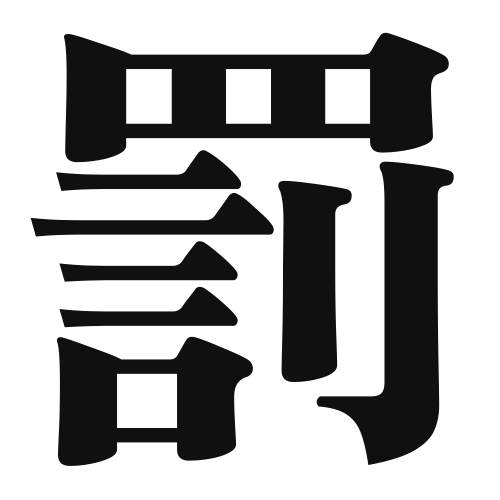1. Overview of Meaning
The kanji “罰” (batsu) means “punishment” or “penalty.” It refers to a consequence imposed for wrongdoing or a violation of rules, often in a legal or moral context.
2. Formation and Radical
Formation of the Kanji: The kanji “罰” is a compound character (会意文字) that combines elements to convey its meaning. It consists of the radical “牛” (ushi), which relates to cattle, and “罰” itself, which suggests a form of punishment.
Radical: The radical of “罰” is “罒” (which relates to nets or traps), indicating a connection to capturing or holding accountable.
3. Examples of Usage
Common Words and Phrases:
- 罰金 (bakin) – fine
- 罰則 (bassoku) – penalty provisions
Example Sentences in Daily Conversation:
- 彼は法律を破ったので、罰を受けなければならない。
- (He must face punishment for breaking the law.)
4. Synonyms and Antonyms
Similar Kanji:
- 処罰 (shobatsu) – punishment, often used in a legal context.
- 懲罰 (choubatsu) – disciplinary action, usually more severe.
Opposite Kanji:
- 報酬 (houshuu) – reward, which signifies a positive consequence for good behavior.
5. Cultural and Historical Background
Relation to Japanese Culture: In Japanese culture, the concept of “罰” is often tied to moral teachings and the importance of accountability. It reflects societal values regarding justice and order.
Proverbs and Idioms:
- 「因果応報」 (inga ouhou) – “What goes around comes around,” emphasizing that actions have consequences, whether good or bad.
